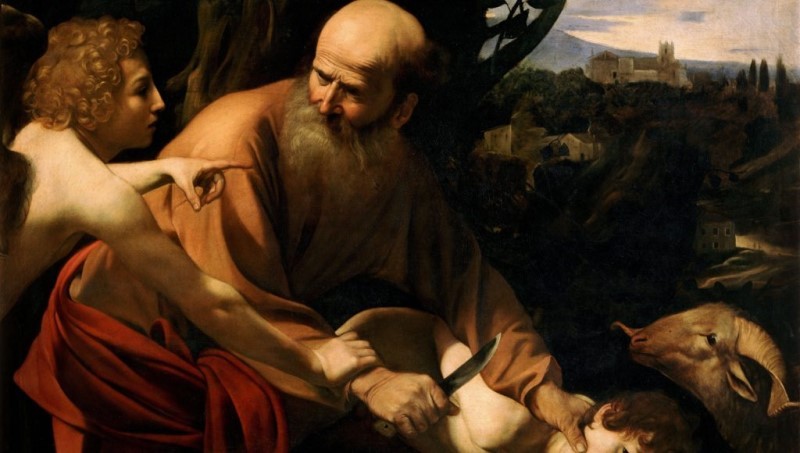
Homily for 28 February
I struggled with the readings today, but then why should the Scriptures be easy? Faith is the thread connecting the readings for me. And Lent is about having our faith renewed. he Father’s voice towards the end of the Gospel tells the disciples to listen to the Son. There is dying in real listening – a faith which makes us willing to hear not what we want to hear, but what God wants us to hear. And what we hear, what we receive will change over time.
In the first reading God commands Abraham to sacrifice his son, his only son whom he loves. Those are the words the angel uses as if to drive the dagger in. And Abraham starts the journey in obedience. There is a poignant exchange between Abraham and Isaac which is not in our reading. Isaac points out that they do not have an animal for the sacrifice to his Father. Abraham responds, ‘My son, the Lord will provide.’ When I was a young seminarian, I admired Abraham’s faith and obedience. As I grew older and as my nephews and nieces appeared on the scene, the reading became more of a struggle. Actually, If God were to ask me to sacrifice one of my nephews or nieces, I know what I would say…No; I would not do it. And it wouldn’t be God anyway. I say knowing with absolute confidence that God would not ask that of me. Absolute confidence because God throughout the Old Testament tells his people that he abhors human sacrifice. It is repugnant to him. His Chosen People were surrounded by pagan tribes which practiced human sacrifice to their idols, but the God of Israel, the one God absolutely forbade it. It was a horror to him. Yet in the first reading he commands Abraham to do it. Now this is very early on in the history of salvation and Abraham is still learning the ways of God, perhaps he thinks that he is no different from the idols of others. God does not let Abraham carry through with the sacrifice which may have been part of the lesson; God wants faith not sacrifice, but it is a hard lesson for the old man who has to journey to the mountain thinking that his son’s death is ahead. Abraham trusts that God will provide. Everything he has, he has received from God.
I have struggled with the meaning of the Transfiguration for years. What was the point of Jesus revealing his glory to the three disciples? It didn’t help them remain faithful at his crucifixion. In fact he tells them not to speak about it until after he rises from the dead which puzzles them even more. But hearing the Son is a journey. The Transfiguration is the Lord preparing the way for his disciples to believe in in him after his Resurrection. The Resurrection after all did not make everything clear for the disciples. It does not even make everything clear for us two thousand years later. They would remember that the One who suffered on the Cross is the same beloved Son who was revealed in heavenly glory and beauty on the mountain; remembering, pondering they would realise that he is Lord and God. As we go through our own struggles, we shall need to believe that truth again and again and keep on learning what that means.
After the struggles of the first reading and Gospel our second reading assures us of the love which moves God. God, who does not want human sacrifice, does not stop us from crucifying his own Son. His Son who is the face of his mercy is rejected by us and crucified. God does not want human sacrifice, but God turns that our killing of his Son into a sacrifice of love, a new covenant in the body of his beloved Son which saves us for ever. Abraham’s journey with Isaac finally finds its fulfilment in Jesus’ sacrifice of love. As we struggle with faith and with trust, God’s love gives us hope. He has given us his Son, we not fear.

